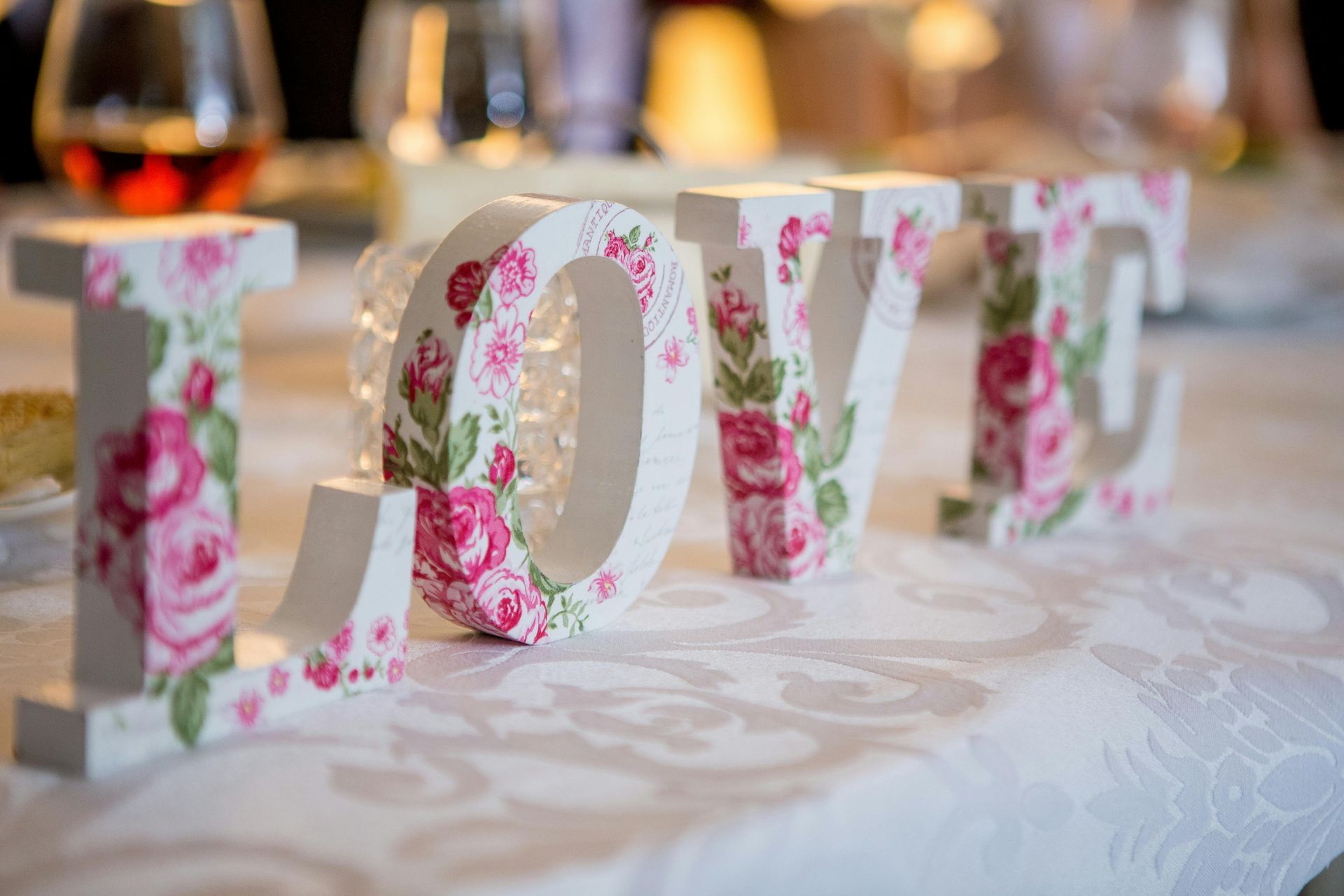Blog

2 Corinthians 7:4 says, “…In all our affliction, I am overflowing with joy.” At first glance, this sounds like an oxymoron. How can someone overflow with joy while walking through affliction? The word used for affliction here refers to “a state of severe distress or suffering, often due to external pressures or persecution” (Strong’s Lexicon). If that's the case, shouldn’t affliction be accompanied by sadness, hurt, and brokenness? And yet, Paul says he was overflowing with joy — because his joy wasn’t tied to his external circumstances. His joy came from the Holy Spirit. His relationship with God anchored him in something deeper than what was happening around him. Jesus never promised us a life of endless sunshine and rainbows. He said plainly, “If anyone wants to come after Me, let him deny himself, pick up his cross, and follow Me.” He didn’t hide the reality of hardship and tribulation. He told us we will have trouble in this world — but He also said we can take heart because He has overcome the world. Our joy doesn’t come from smooth sailing. Our joy comes from Him. It comes from the fact that Jesus is with us in the midst of it all — and His presence brings a peace and a joy that nothing in this world can match. That’s why, even when we walk through things that should have crushed us, we’re still standing. Still smiling. Our joy is from the Lord, and His joy is our strength! So yes — affliction and joy can coexist in the life of the believer. James 1:2-4 challenges us: “Consider it pure joy, my brothers and sisters, whenever you face trials of many kinds…” At first, that feels like a stretch. How can we call trials joy? But the word "consider" (hégeomai) means: to lead, to think, to regard, to esteem. It’s almost like James is saying: the trial doesn’t lead your experience — you do. You get to choose your perspective. You get to choose how you will think about it, how you will regard it, how you will frame it. It’s not the event that determines your experience — it’s your perspective about it. Jesus, our perfect example, showed us the way. He knew exactly what He was about to endure. He could have let shame, fear, and dread overwhelm Him. But Hebrews says He despised the shame. He looked down on it — He didn’t let it define Him or stop Him. Likewise, when we walk in our true identity in Christ — seated with Him in heavenly places — we can look down on shame, guilt, fear, suffering, uncertainty, and everything else that comes with trials… And we can choose joy . We can be joyful in hope, because Jesus is our Hope of Glory! As 1 Peter 1:3 says: "Praise be to the God and Father of our Lord Jesus Christ! In His great mercy, He has given us new birth into a living hope through the resurrection of Jesus Christ from the dead!" We also need patience in tribulation. If we jump out of the fire too soon, we won’t come out properly refined. If we exit the pressure too early, the oil won’t flow. Tribulation makes us encounter God on a deeper level. It produces something precious in us — like fire purifies gold, tribulation purifies our faith. James tells us: “…the testing of your faith produces perseverance. Let perseverance finish its work so that you may be mature and complete, not lacking anything.” (James 1:2-4) Patience, or longsuffering, also keeps us from snapping at others because of our own pain. It steadies our souls when everything feels unstable. And through it all — be constant in prayer. Prayer builds intimacy with God. Prayer strengthens us in the hidden places. Luke 18:1 reminds us: “Men ought always to pray and not faint.” Even Jesus — God in the flesh — modeled a life of constant prayer while He was on earth. How much more do we need it?

“A joyful heart is good medicine, but a crushed spirit dries up the bones.” – Proverbs 17:22 Joy is not just a nice feeling. According to Scripture, it’s a powerful force—one that brings healing, strength, and restoration. From Genesis to Revelation, the Bible paints joy as a recurring theme, woven into the rhythms of worship, community, and life with God. In Hebrew, the word is simchah , and in Greek, it’s chara . Whether expressed in celebration or held quietly within, joy is more than emotion—it’s a spiritual reality. The external expressions of joy—dancing, singing, feasting—are beautiful, but they are responses, not sources. True joy flows from the presence of God. It’s rooted in who He is: faithful, near, and unchanging. According to Strong’s Lexicon, joy in the Old Testament is deeply connected to the covenant relationship between God and His people. It’s both a gift and a response to divine faithfulness. In the New Testament, we see joy listed among the fruit of the Spirit in Galatians 5:22. This reminds us that joy isn’t something we manufacture—it’s something cultivated in us through relationship with the Holy Spirit. That’s why James can write, “Consider it pure joy… whenever you face trials” (James 1:2). This isn’t wishful thinking—it’s a call to live from a deeper source, one not bound by our circumstances. Proverbs 17:22 isn’t just a poetic verse—it’s divine wisdom backed by both Scripture and science. It says a joyful heart is good medicine. That means the opposite is also true: a heart lacking joy and peace can become a breeding ground for illness, discouragement, and decay. And science agrees. Many physical conditions trace back to emotional pain. Depression, anxiety, and grief don’t just affect the mind—they often show up in the body. There’s even a term for it in medicine: psychosomatic illness . These are real physical symptoms triggered by emotional or mental distress—things like insomnia, fatigue, high blood pressure, back pain, ulcers, and migraines. Perhaps one of the most compelling examples is broken heart syndrome —also known as stress cardiomyopathy or takotsubo cardiomyopathy. It’s a real, diagnosable condition where severe emotional stress causes the heart to temporarily weaken and change shape. The symptoms mimic a heart attack: chest pain, shortness of breath, and even heart failure. It’s the emotional becoming physical—and it’s more common than we think. But here’s the good news: God already gave us a prescription. Joy. Not artificial happiness. Not toxic positivity. But real, Spirit-born joy. Joy that heals. The word for “medicine” in Proverbs 17:22 doesn’t just mean pills or ointments—it also refers to healing, restoration, and even the miraculous works of Jesus. That’s how powerful joy is. If you find yourself in a season of heaviness, start here: ask the Holy Spirit to cultivate joy in your heart. Not just for the sake of your mood, but for the sake of your health. Practice gratitude. Rejoice in the small things. Worship even when it’s hard. And surround yourself with life-giving people and environments that help joy grow. Joy is not a luxury. It’s a necessity. It’s God’s gift for your spirit—and your body. Because a joyful heart really is good medicine.

Scripture Colossians 3:15 Let the peace of Christ rule in your hearts, since as members of one body you were called to peace. And be thankful. Shalom: The Power of Peace in Our Hearts and Lives When you think of the word "shalom," what comes to mind? Often, it's associated with peace, but there's so much more depth to this Hebrew word. Shalom, in its truest sense, encompasses wholeness, completeness, safety, and prosperity. It is a state of being where everything is in harmony — not just with the world around you, but within you. In Hebrew, there’s a phrase commonly used to ask someone how they’re doing: "ma shlomcha?" This literally translates to “What is your peace?” or “What is your well-being?” It’s a beautiful way to inquire about someone’s overall health, not just physically, but mentally, emotionally, and spiritually. Interestingly, the feminine form of this phrase is “shlomech.” The word "shalom" here carries its possessive form — "your peace." It’s more than just asking if someone is feeling okay in a moment, it’s asking about their wholeness and completeness. Who Rules the Control Board of Your Heart? Imagine your heart is like a control board, similar to the one in the movie Inside Out, where each emotion has a seat at the table. Who is sitting at the control board of your heart right now? Is it peace? Or is it something else like bitterness, offense, or brokenness? The idea behind "shlomech" is powerful: we have the authority to decide who governs our hearts. In the same way that we control who sits at that emotional control board, we also have the responsibility to ensure that peace, or eirene (the Greek equivalent of shalom), is the one making the decisions. Eirene doesn’t just mean a lack of conflict; it signifies wholeness, safety, and completeness. It’s the feeling that everything is complete in your world, that nothing is broken, missing, or damaged. And when peace is in charge, we make decisions based on that sense of well-being. We become fairer, kinder, and more balanced in our thoughts and actions. Don’t Let Bitterness Be the Ruler of Your Heart One of the most dangerous things we can allow to control our hearts is bitterness. Bitterness often acts as a silent ruler, making decisions based on past hurts and grudges. Imagine being hurt by someone, and instead of choosing healing, you choose to let that hurt define your future actions. Bitterness, pride, and offense can lead you to make decisions that you later regret. It’s easy to let these negative emotions take the seat of authority. But we’re encouraged, even commanded, to choose peace. The word “let” in this context is important — it’s a decision. You don’t have to let bitterness or anger rule you. Instead, you can choose peace, even when you’re hurt. You have the ability to choose what governs our hearts. Choosing Peace in the Midst of Conflict I once watched a short comedy sketch where two friends debated whether or not to give a big contract to an old classmate. One friend was completely against it, citing a past incident from school when this classmate wouldn’t let him cheat on an exam, leading him to fail. The whole argument stemmed from a petty, unresolved issue from years ago. The problem? Bitterness was ruling his heart, making decisions in the moment. If peace were in control, the judgment would have been different. Peace would have focused on the present: Does this person have the skills and ability to handle the contract? Not on a past unfounded offense. Unfortunately, this happens more often than we’d like to admit. We allow past wounds, unhealed offenses, or selfishness to control the decisions we make. It’s time to impeach those negative emotions and let peace rule our hearts. Selfishness vs. Peace Selfishness can also be a decision-maker in our hearts. It whispers to us that we need to protect our own interests, win the argument, and prioritize ourselves above all else. While that might feel good in the short term, it can harm relationships and leave you with a hollow sense of victory. Peace, however, is a more thoughtful and strategic ruler. It helps you see the bigger picture, considering the long-term effects of your actions. Peace will tell you to apologize even when you’re right because it understands that relationships are more valuable than winning a fleeting argument. Peace makes decisions with longevity in mind, considering the lasting impact on your relationships and your future. A Call to Let Peace Rule So, here’s the challenge: Let peace be the one at the control board of your heart. It’s not always easy, especially when emotions like hurt, offense, or selfishness are clamoring for attention. But by choosing peace, you’re choosing wholeness, safety, and prosperity in your life. You’re ensuring that your decisions are rooted in love, wisdom, and understanding. It’s time to let go of bitterness, pride, and selfishness. Don’t let them rule your heart any longer. Let peace reign. Shalom — may peace, wholeness, and completeness be the ruling force in your heart today and always.

Love Suffers Long Scripture " Love suffers long and is kind; love does not envy; love does not parade itself, is not puffed up." 1 Corinthians 13:4 Greek Word Study: Makrothymeo (mak-roth-oo-meh-o) Definition: Withholding anger, choosing not to retaliate when wronged, and exercising the same slow-to-anger attitude God demonstrates toward us. Breakdown: - Derived from: makros (long) and thumos (temper, passion) meaning: slow to anger. - The ability to endure in the face of provocation. - Practicing self-restraint rather than hastily retaliating. - Choosing forgiveness instead of judgment. - Waiting sufficient time before expressing anger. Application: - Think of a time when you wanted to retaliate but chose patience instead. How did it impact the situation? - What steps can you take to cultivate long-suffering in your relationships? - How does God's patience with you inspire you to be patient with others? Prayer: Abba, help me to be patient. Teach me to withhold anger and extend grace, just as You do. Strengthen my heart to endure with love. Amen.

Self- Love or Self-Seeking Love Scripture "Love one another with brotherly affection. Outdo one another in showing honor." Romans 12:10 (ESV) Self-love is not selfish, but self-seeking love is often mistaken for true love. Genuine love does not pursue its own interests or make itself the focus of its desire. That is the way of the world—where everything revolves around self. But love is about service; it is about the beloved. Love seeks the well-being of the one it cherishes. Many enter relationships with a self-centered mindset: “I love him because he makes me happy.” This kind of love is rooted in self-interest. Yet, Jesus loves His bride, and He gave Himself up for her—not because she brought Him joy, but to make her whole. He sacrificed Himself to present her without blemish. Our love for Jesus is not what initiated His love for us; rather, we love Him because He first loved us, even when we did not choose Him. Love is relational, not transactional. Loving yourself does not mean you never compromise or make sacrifices. True self-love does not constantly ask, “What’s in it for me?” in every situation. Prioritizing the well-being of others does not mean you lack self-love—it simply means love is not self-centered. Prayer Dear Heavenly Father, Please, forgive me for every time my actions did not reflect love according to your standards; forgive me for every selfish action. Forgive me for the time I chose myself over your Kingdom. Help me to love like you do. Help me to relate to others the way you relate to me. Help me to live a life worthy of you. Reflection Prayer What can you do today to show the love of God to another person who would not expect it? What will you do to act selflessly today?

I Love, Therefore I Give "True love is about the other person—the beloved—not the lover." \ Scripture 1 Corinthians 13: 4 Love is patient, love is kind. It does not envy, it does not boast, it is not proud. True love is about the other person—the beloved—not the lover. We live in a society that equates love with the emotions we experience when we are with someone when they speak to us, or how they treat us. The Hebrew word for love is ahavah . One of its root words, hav , means "to give." Love is an action. So, when you say you love someone, it goes beyond their height, complexion, facial features, voice, smile, or any outward trait. The true measure of love is how much you are willing to give to that person. When Jesus was speaking to the Jews, He said, "For God so loved the world that He gave His only begotten Son..." For God so ahavah that He hav . The magnitude of the gift reflects the magnitude of the love. God did not give Jesus because He felt “butterflies” in His stomach when He looked at humanity. On the contrary, He gave Jesus to us while we were still sinners—when we were His enemies. No wonder the Jews approach marriage differently than we do because they understand that love is not based on feelings or emotions but on the lover’s willingness to give to the beloved. When you love, you give—your time, attention, resources, and even your body (when you get married). In the Western world, love is often defined as the emotional high someone feels based on how another person makes them feel. However, true love is about how much you can give to the person you love. So, the next time you say you love this man, ask yourself: *"How much am I willing to give to him—time, resources, patience, effort, and submission (if I marry him)?"* Prayer Dear Heavenly Loving Father, I thank you for your love. I thank you for giving us Jesus who is the model of what love truly means. Thank you for loving me before I even knew you. Father, purge me of every perception, concept, mentality, and belief about love that is not from you. Help me to adopt your definition of love. Teach me to love as you love me. In Jesus name! Amen Reflection What are some beliefs you have/had about love that are not in alignment with God’s definition of love? How will the word of God shape how you approach love?

Scripture 1 John 4:8 He who does not love does not know God, for God is love. Love is one of the most misused words. We use "love" to describe our acquired taste for coffee, our inclination toward a certain genre of music, or our preference for a dish. Over time, love has been diluted and often used interchangeably with "like." But to avoid misusing or abusing something, you must first understand its intended purpose. The best way to know the correct use and intent of something is to go to its source. The source of love is God. In fact, God is love. One thing that always captivates my attention whenever I read, hear, or say those three words is this: Love is not an adjective. The grammatically correct form might have been “God is loving.” But it’s no coincidence that the Bible states, “God is love.” This ties in perfectly with Apostle Paul's words: “The fruit (singular, not plural) of the Spirit is love…” (Galatians 5:22). The verse above also teaches us that if someone does not love, then they do not know God. The inverse is equally true: If someone does not know God, then they cannot truly love. Love, as described in the Bible, is a fruit produced by the Spirit of God. True love—the God-kind of love, Agape —which Jesus commands us to practice, means selfless, sacrificial benevolence and esteem for others. Our natural tendency is to be selfish, to prioritize what seems best for ourselves, and to avoid making sacrifices. However, the love that flows from God calls us to a higher standard. Prayer Dear Heavenly Father, Thank you for loving me sacrificially, and selflessly, even when I didn’t know you. You chose to send your son to die in my place even when you knew I would rebel against you. Thank you that your love keeps pursuing me, even when I know better and don’t do better. Help me to accept your love and to love you with everything I have. In Jesus name! Amen. Reflection What does love mean to you? What beliefs you have/had about love that's not in alignment with God's definition of love? What actions can you do today to embrace God's definition of love?

Marriage isn’t a destination — it’s the starting line for a life of purpose, growth, and impact. I want to get married. I want to have a family and share my life with someone special. But more than that, I want to live an impactful life. Marriage should not reduce me to housework simply because I said “I do.” I desire a partnership, not confinement. What I don’t want is a man with the mindset that marriage is a destination — a place to settle down after he’s tired of running around. A man who decides he’s ready to “settle” and sees his wife as someone to cook, clean, raise children, and build a predictable life of vacations, savings, and retirement. Before you label me a feminist, hear me out. Yes, I am strong-willed and independent, but I deeply value the principles of respect, honor, and submission in marriage. I will honor my future husband, but I need him to see me as more than a homemaker. I am industrious. I am a dreamer. I love to inspire others through my blog, videos, and books. I carry within me wild and audacious dreams that fuel my purpose. I don’t want to be forced to choose between saving my marriage and fulfilling my calling. Instead, I want a man who sees marriage as a starting point for purpose-driven partnership. I want a man who will be my ally, my encourager, my purpose partner. I want a visionary; someone who is diligent and not complacent. Someone who understands that his role is not to compete with me or diminish my dreams but to create an environment where we can both thrive. I want a man who believes that my potential is limitless. A man who doesn’t box me into the kitchen or the bedroom but celebrates the visionary in me. Together, I want us to build a life that is bigger than ourselves — a life of impact, purpose, and legacy. Marriage, to me, is not the end of the story; it’s the beginning of a new chapter. A chapter where two people come together, not to settle, but to rise — higher, stronger, and brighter, as one. So, no, i don’t want to settle down. “Settle down” has many meanings, but one definition stands out to me: to become quiet and calm, or to make someone else quiet and calm. Yes, I crave stability, but I refuse to equate that with stagnation. Marriage, to me, isn’t about silencing my voice or dulling my flame — it’s about growth, partnership, and purpose. I don’t want to become quiet and calm when I get married. On the contrary, I need a partner whose voice amplifies mine and vice versa. Together, I want us to live boldly and loudly for Jesus. I need someone with whom I can go to war against the kingdom of darkness. And there’s nothing quiet about war. I dream of a partner whose light I can expand in this world of darkness, whose brilliance will draw nations and kings. I won’t settle for a relationship that stifles my voice, quenches my fire, or reduces my blaze to a flicker. I don’t want a relationship that will turn me into a shadow of myself. No, I don’t want to “settle down.” That sounds like subtraction. I want multiplication — exponential growth. The kind that says one can chase 1,000, but two? Two will chase 10,000.

You Were Made for This You were made for what you’re going through. Sometimes, it takes walking through the fire to discover just how strong you really are. It’s in those moments—the ones that feel like they might break us—that we truly see what we’re made of. Here’s the truth: God is never caught off guard. Nothing that happens to us takes Him by surprise. He knows every trial we’ll face, and He equips us long before we ever encounter them. Trials are like strength training; with each one, we build spiritual resilience and gain a deeper understanding of His faithfulness. All Things Work Together for Good If you’ve read my first book, Single, Saved, and Content , you know one of the most devastating moments of my life. I discovered that the man I loved, the one I thought I’d build a future with, was already married. That betrayal left me shattered, questioning everything. Yet, it became the foundation for something far greater than I could have imagined. Fast forward seven years, and I faced another heart-wrenching loss—my fiancé went to be with the Lord. It was a blow I didn’t see coming, a grief so deep it felt like it might swallow me whole. But here’s the remarkable thing: the lessons God taught me through that earlier heartbreak had already prepared me for this moment. During that first storm, I began to grasp the full meaning of Romans 8:28: “All things work together for good to them that love God, to them who are the called according to His purpose.” At the time, it didn’t feel like anything good could come from my pain. Yet, God proved me wrong. That heartbreak birthed a book, a retreat, and countless testimonies of lives transformed. So, when my fiancé passed, I grieved deeply. The pain was real, and the loss was profound. But alongside my sorrow, there was a beacon of hope. I thought, If God could bring so much good out of heartbreak, what could He bring out of this season of loss? That question gave me strength and joy in the midst of the chaos. It reminded me that even in my pain, there was purpose. You Can't Lose Grief didn’t crush me because I knew I couldn’t lose with God on my side. Even in my lowest moments, God’s promises held me steady. I found comfort, hope, and an indescribable resilience in knowing that my story wasn’t over. The enemy may have meant it for evil, but I trusted that God would transform it for His glory. What I’ve come to see is this: my scars are my credentials. Yesterday’s bears and the lions qualified me to face today’s Goliath. They are proof of God’s ability to heal and redeem. Those scars qualify me to reach people I never could have reached otherwise. As someone called to minister to single women, my experiences have expanded my capacity to connect with those walking through heartbreak and loss. Whether you’ve lost a boyfriend, fiancé, husband, or loved one, my journey taught me compassion and hope that I can share with you. God wastes nothing. Every tear, every heartbreak, every loss—it all serves a purpose in His hands. Out of this season of grief, I know He will give me beauty for ashes. Maybe it’s another book, or simply a deeper ability to serve others. Whatever it is, I trust that it will be good because He works everything for our good. There is purpose in your pain too! So, I endure with anticipation, knowing that the glory is coming. If you’re walking through your own valley of the Shadow of Death right now, I want you to know this: you were made for this. God has equipped you with the strength you didn’t know you had. He is with you in your pain, and He will use it to bless others in ways you can’t yet imagine. Hold on, sis. Let your scars tell the story of God’s faithfulness, and let your healing become a light for others. The glory is coming.

